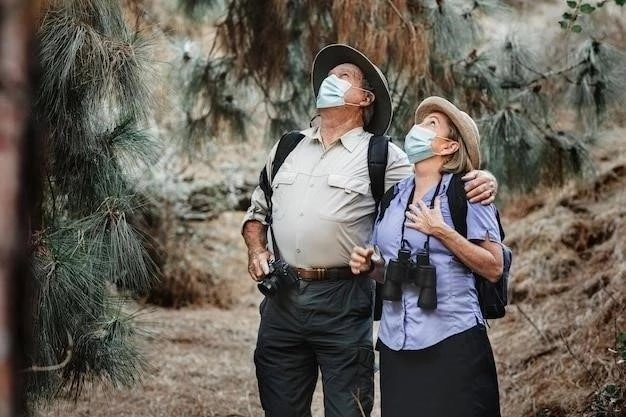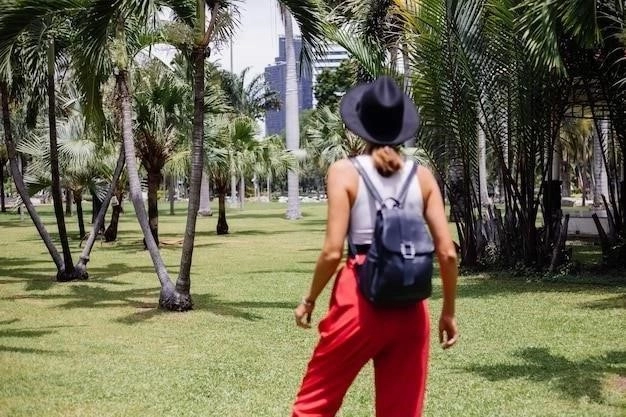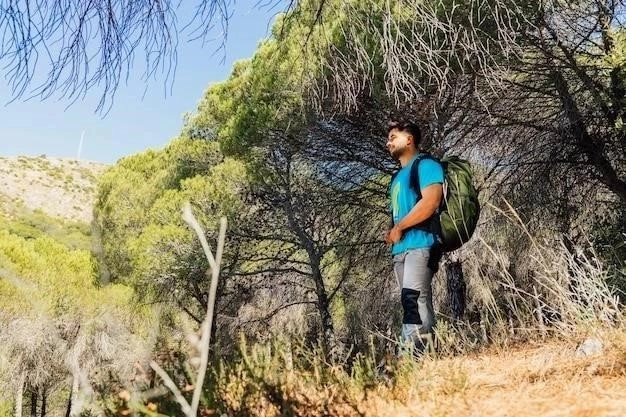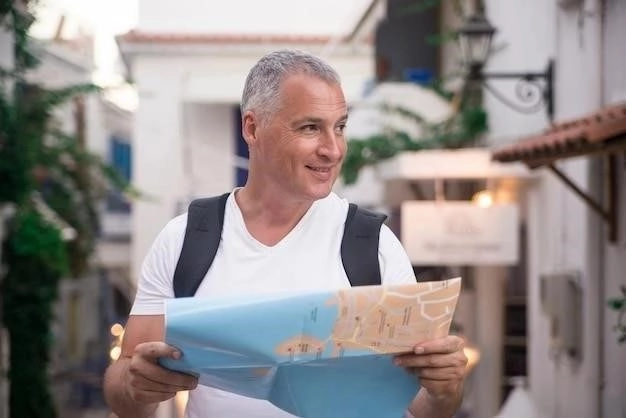Lebanon Travel Guide
Discover the captivating allure of Lebanon, a land steeped in history and adorned with natural beauty. From the vibrant capital of Beirut to ancient ruins and charming coastal towns, this travel guide will provide insights for your Lebanese adventure.
1. Introduction: Unveiling the Enchantment of Lebanon
Nestled along the eastern shores of the Mediterranean Sea, Lebanon beckons travelers with a rich tapestry of history, culture, and natural splendor. Often referred to as the “Pearl of the Middle East,” this captivating country offers a unique blend of ancient wonders and modern sophistication.
Journey through millennia of history as you explore well-preserved Roman temples, majestic castles of the Crusaders, and the vibrant souks that have thrived for centuries. From the snow-capped peaks of Mount Lebanon to the fertile Bekaa Valley and the azure waters of the Mediterranean coastline, Lebanon’s diverse landscapes are a sight to behold.
Immerse yourself in the warmth of Lebanese hospitality, renowned throughout the world. Indulge in the exquisite flavors of Lebanese cuisine, a tantalizing fusion of fresh ingredients, aromatic spices, and culinary artistry. Discover a country where ancient traditions blend seamlessly with modern life, creating a captivating atmosphere that is both enchanting and unforgettable. This travel guide will serve as your compass, leading you through the highlights of Lebanon and inspiring you to uncover its hidden gems.
2. Safety and Security: Essential Information for Travelers
While Lebanon is generally a safe destination for travelers, it is essential to stay informed about the current security situation and take necessary precautions. The political climate can be volatile, and regional tensions can sometimes spill over into Lebanon.
Before traveling to Lebanon, it is advisable to check the travel advisories issued by your government and register with your embassy upon arrival. Be aware of your surroundings, particularly in crowded areas and near potential targets such as government buildings and religious sites. Avoid discussing sensitive political or religious topics with strangers.
Certain areas, particularly those bordering Syria and Israel, may pose a higher security risk and should be avoided unless absolutely necessary. It is recommended to travel with reputable tour operators, especially when visiting remote areas. Petty crime, such as pickpocketing and theft, can occur, so be vigilant with your belongings and avoid displaying large amounts of cash.
It’s also important to be aware of the potential for natural disasters, such as earthquakes. Familiarize yourself with local emergency procedures and ensure you have a communication plan in case of any unforeseen events. By exercising caution, staying informed, and respecting local laws and customs, you can enjoy a safe and memorable trip to Lebanon.
3. Visa Requirements and Entry Regulations
Before embarking on your journey to Lebanon, it is essential to ensure you meet the necessary visa requirements and entry regulations. Citizens of certain countries may be eligible for visa-free entry for a limited period, while others will need to obtain a visa in advance.
To determine the specific requirements for your nationality, it is highly recommended to contact the nearest Lebanese embassy or consulate in your home country. Generally, a valid passport with at least six months of remaining validity from the date of entry is required. Additionally, you may need to provide proof of onward travel, such as a return ticket or itinerary, and evidence of sufficient funds to cover your stay.
It’s important to note that visa regulations can change, so it’s crucial to verify the latest requirements before your departure. Upon arrival at Beirut-Rafic Hariri International Airport or any other port of entry, you will undergo immigration and customs procedures. Be prepared to present your travel documents, answer any questions from immigration officials, and declare any restricted items.
4. Best Time to Visit Lebanon: A Seasonal Guide
Lebanon’s diverse geography and Mediterranean climate offer pleasant weather conditions for most of the year, making it an appealing destination for travelers throughout the seasons. However, the best time to visit depends largely on your interests and preferred activities.
Spring (March to May) and Autumn (September to November) are generally considered the shoulder seasons and offer the ideal balance of pleasant weather and fewer crowds. During these months, the temperatures are mild, ranging from the mid-60s to the mid-70s Fahrenheit (18-24 degrees Celsius), making it ideal for exploring ancient ruins, hiking in the mountains, and enjoying outdoor activities.
Summer (June to August) brings hot, dry weather, particularly in inland areas like the Bekaa Valley. Coastal regions, however, offer a welcome respite from the heat with refreshing sea breezes. This is a popular time for beachgoers and those seeking vibrant nightlife in Beirut. Winter (December to February) sees cooler temperatures and occasional rainfall, with snow blanketing the higher elevations, creating opportunities for skiing and snowboarding enthusiasts.
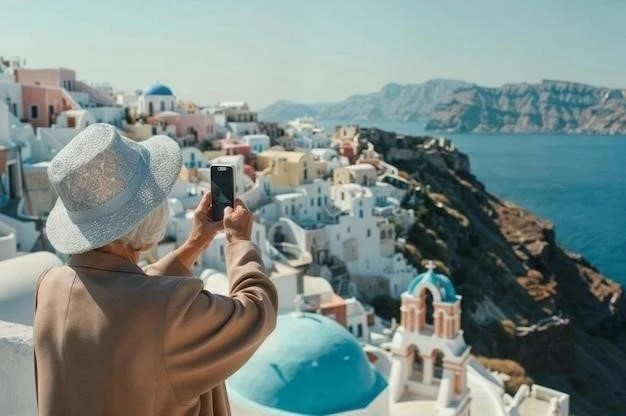
5. Exploring Beirut: The Vibrant Capital City
Beirut, the captivating capital of Lebanon, is a city where ancient history intertwines with modern dynamism, creating an atmosphere that is both intoxicating and unforgettable. As you stroll along its bustling streets, you’ll be greeted by a vibrant tapestry of cultures, languages, and architectural styles that reflect the city’s rich and complex past.
Begin your exploration in the heart of Beirut, where the remnants of Roman baths stand as a testament to the city’s ancient origins. Wander through the charming streets of Gemmayzeh and Mar Mikhael, renowned for their colorful buildings, trendy cafes, and vibrant nightlife. Explore the historic neighborhoods of Ashrafieh and Hamra, each with its own unique character and charm.
No visit to Beirut is complete without a leisurely promenade along the Corniche, a scenic waterfront promenade offering breathtaking views of the Mediterranean Sea. Discover the iconic Pigeon Rocks, a natural wonder that has become a symbol of the city. Immerse yourself in the city’s thriving art scene by visiting the Sursock Museum, home to a remarkable collection of modern and contemporary art. As the sun sets, experience the city’s legendary nightlife, with its rooftop bars, live music venues, and bustling nightclubs.

5.1 Historical Gems of Beirut
Journey through millennia of history as you uncover the captivating historical gems of Beirut. This ancient city, once a prominent Phoenician port, bears witness to a rich tapestry of civilizations, each leaving an indelible mark on its architectural landscape.
Commence your exploration at the Beirut National Museum, home to a vast collection of artifacts dating back to prehistoric times. Marvel at the intricately carved Phoenician sarcophagi, Roman mosaics, and Ottoman-era weaponry, each piece offering a glimpse into Lebanon’s captivating past.

Venture into the heart of the city to discover the ruins of Roman Baths, a testament to Beirut’s significance during the Roman Empire. Stroll through the well-preserved complex, imagining the daily rituals of its ancient inhabitants. Nearby, explore the Mohammad Al-Amin Mosque, a stunning example of Ottoman architecture with its towering minarets and grand dome.
For a glimpse into Beirut’s more recent history, visit the Martyrs’ Square, a poignant reminder of the Lebanese Civil War. Reflect on the sacrifices made in the pursuit of peace and unity as you stand amidst the bullet-scarred buildings that surround the square. As you delve into the historical gems of Beirut, you’ll gain a deeper appreciation for the resilience and spirit of this captivating city.
5.2 Culinary Delights in Beirut
Prepare your palate for an unforgettable gastronomic adventure in Beirut, a city renowned for its culinary prowess. Lebanese cuisine is a vibrant tapestry of flavors, influenced by a rich history of trade and cultural exchange. From bustling street food stalls to upscale restaurants, Beirut offers a culinary journey for every taste and budget.
Embark on your culinary exploration by indulging in a traditional Lebanese breakfast. Start your day with a spread of freshly baked bread, creamy labneh (strained yogurt), za’atar (a blend of dried herbs and spices), and a steaming cup of Arabic coffee. For a quick and flavorful lunch, sample the local street food. Delight in savory shawarma wraps, crispy falafel sandwiches, and juicy skewers of grilled meat, all bursting with authentic Lebanese flavors.
As the sun sets, immerse yourself in the city’s vibrant dining scene. Beirut is home to an eclectic array of restaurants, serving up everything from traditional Lebanese fare to international cuisine. Indulge in a multi-course meal, savoring dishes like hummus, baba ghanoush, kibbeh (meatballs made with bulgur wheat), and fresh seafood. No culinary journey in Beirut is complete without experiencing the art of mezze, a selection of small, flavorful dishes meant for sharing.
6. Beyond Beirut: Unveiling Lebanon’s Hidden Treasures
While Beirut pulsates with urban energy, venturing beyond the capital reveals a tapestry of hidden treasures waiting to be discovered. From ancient ruins to natural wonders and charming towns, Lebanon’s diverse landscapes offer a captivating escape for the adventurous traveler.
Journey north along the coast to Byblos, one of the oldest continuously inhabited cities in the world. Explore the remnants of its Phoenician, Roman, and Crusader past, including the imposing Crusader Castle, the ancient harbor, and the charming old souk. Inland, discover the breathtaking Jeita Grotto, a series of interconnected limestone caves adorned with dazzling stalactites and stalagmites.
Venture further north to Tripoli, Lebanon’s second-largest city, where a blend of Ottoman, Mamluk, and French architectural styles creates a captivating ambiance. Explore the bustling souks, visit the historic Citadel of Raymond de Saint-Gilles, and savor the city’s renowned sweets. In the Bekaa Valley, a fertile plain nestled between mountain ranges, explore the ancient Roman city of Baalbek, home to some of the largest and best-preserved Roman temples in the world.
For a scenic escape, head to the Qadisha Valley, a UNESCO World Heritage site renowned for its dramatic cliffs, lush valleys, and ancient monasteries carved into the rock face. Hike through cedar forests in the Shouf Biosphere Reserve, home to the majestic Cedars of God, a symbol of Lebanon’s resilience.
6.1 Ancient Ruins of Baalbek
Journey back in time to the ancient world at the awe-inspiring ruins of Baalbek, a UNESCO World Heritage Site and one of the most remarkable archaeological treasures of the Roman Empire. Located in the fertile Bekaa Valley, Baalbek’s grandeur and architectural prowess stand as a testament to the Roman Empire’s far-reaching influence.
As you enter the complex, prepare to be awestruck by the sheer scale and magnificence of the Temple of Jupiter, one of the largest Roman temples ever built. Marvel at the six colossal columns that have withstood the test of time, hinting at the temple’s former glory. Adjacent to the Temple of Jupiter, explore the exquisitely preserved Temple of Bacchus, dedicated to the Roman god of wine and revelry. Admire its intricate carvings, including depictions of bacchanalian scenes and mythological figures.
Adjacent to the Temple of Bacchus, the Temple of Venus, smaller in scale but no less impressive, captivates with its circular design and delicate Corinthian columns. As you wander through the ruins, imagine the bustling city that once surrounded these temples, a testament to Baalbek’s significance as a religious and cultural center in ancient times. A visit to Baalbek is an unforgettable journey through history, offering a glimpse into the architectural prowess and grandeur of the Roman Empire.
6.2 Natural Wonders: Jeita Grotto and the Cedars of God
Beyond its historical treasures, Lebanon boasts natural wonders that captivate the senses and inspire a sense of awe. Embark on a journey to discover two of Lebanon’s most remarkable natural wonders: the Jeita Grotto and the Cedars of God.
Nestled in the Nahr al-Kalb valley, the Jeita Grotto is a mesmerizing network of limestone caves, sculpted over millennia by water erosion. Embark on a boat ride through the lower grotto, gliding along an underground river as you marvel at the breathtaking formations of stalactites and stalagmites that adorn the cavern ceiling. Ascend to the upper grotto on foot, where a series of chambers reveals even more awe-inspiring formations, illuminated by a symphony of lights.
High in the mountains of northern Lebanon lies the Shouf Biosphere Reserve, home to the majestic Cedars of God. These ancient trees, some estimated to be over 1,000 years old, have become a symbol of Lebanon’s resilience and endurance. Stroll through the cedar forests, breathing in the crisp mountain air as you admire these towering giants. A visit to Jeita Grotto and the Cedars of God is an unforgettable journey through Lebanon’s natural splendor, a testament to the country’s diverse landscapes and the awe-inspiring power of nature.
7. Lebanese Cuisine: A Gastronomic Journey
Embark on a tantalizing culinary adventure through the vibrant flavors of Lebanese cuisine, a celebration of fresh ingredients, aromatic spices, and a culinary heritage passed down through generations. Influenced by a tapestry of cultures that have graced its shores, Lebanese cuisine is a harmonious blend of Mediterranean and Middle Eastern flavors, offering a symphony of tastes to delight every palate.
Begin your culinary journey with the art of mezze, a selection of small, shareable dishes that showcase the diversity and freshness of Lebanese ingredients. Indulge in creamy hummus, smoky baba ghanoush, and flavorful tabbouleh, a refreshing salad bursting with parsley, mint, and bulgur wheat. Sample savory pastries like spinach-filled fatayer and meat-filled sambousek, their flaky crusts encasing a burst of flavor.
For main courses, savor the rich flavors of slow-cooked stews, grilled meats, and fresh seafood. Indulge in a comforting bowl of lentil soup, seasoned with fragrant spices, or savor the smoky flavors of shish taouk, grilled chicken marinated in garlic, lemon, and yogurt. No culinary journey through Lebanon is complete without experiencing the sweetness of its desserts. Treat yourself to baklava, a delectable pastry made with layers of filo dough, nuts, and honey, or indulge in knafeh, a sweet cheese pastry soaked in syrup.
8. Accommodation: From Boutique Hotels to Luxury Resorts
Lebanon offers a diverse range of accommodation options to suit every traveler’s taste and budget, from charming boutique hotels to luxurious resorts and cozy guesthouses. Whether you seek the vibrant energy of the city center or a tranquil escape amidst nature, Lebanon has something to offer every discerning traveler.
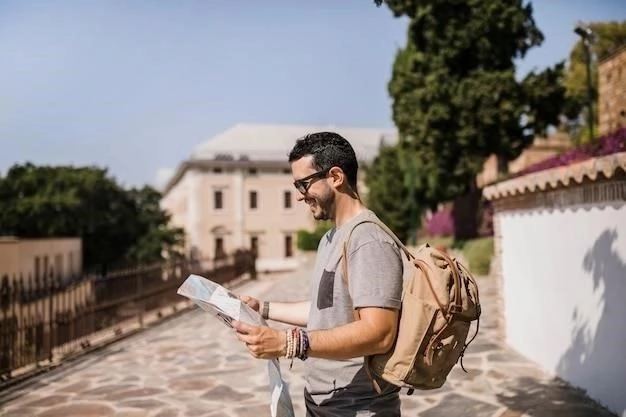
In Beirut, a plethora of hotels caters to every need and preference. Indulge in a luxurious stay at one of the city’s many five-star hotels, boasting stunning views of the Mediterranean Sea, world-class dining experiences, and exceptional amenities. For a more intimate and stylish experience, choose from a selection of boutique hotels, each with its own unique character and charm, often housed in restored historic buildings or tucked away in trendy neighborhoods.
Beyond the capital, discover a range of accommodation options that immerse you in Lebanon’s diverse landscapes. Escape to the mountains and unwind in a cozy guesthouse nestled amidst cedar forests, or retreat to a serene resort in the Bekaa Valley, surrounded by vineyards and olive groves. For a truly unique experience, consider a stay at an eco-lodge, promoting sustainable tourism and offering an authentic connection with nature.
9. Getting Around Lebanon: Transportation Options
Navigating Lebanon is relatively convenient, with a variety of transportation options to suit different preferences and budgets. Whether you prefer the freedom of exploring at your own pace or the ease of guided tours, Lebanon offers a range of choices for getting around.
Taxis are readily available in major cities and towns, providing a convenient way to travel short distances. Be sure to negotiate the fare before starting your journey, or request that the driver uses the meter. For longer distances between cities, shared taxis, known as “services,” offer a cost-effective and efficient mode of transport.
Lebanon also has a network of buses that connect major cities and towns, providing an affordable option for budget-conscious travelers. The country’s main bus company is the Office des Chemins de Fer et des Transports en Commun (OCFTC). For a more comfortable and scenic journey, consider renting a car, which allows for greater flexibility in exploring the country’s diverse landscapes at your own pace. However, keep in mind that driving in Lebanon can be challenging, with heavy traffic and narrow mountain roads.
10. Cultural Etiquette: Respecting Local Customs
As you embark on your journey through Lebanon, embracing and respecting local customs will enhance your travel experience and foster meaningful interactions with the welcoming Lebanese people. By familiarizing yourself with cultural norms and etiquette, you demonstrate cultural sensitivity and promote a more enriching travel experience for both yourself and those you encounter.
When greeting someone, a polite handshake is customary, often accompanied by a gentle touch on the elbow as a sign of respect. It is considered polite to address people using their titles and last names until invited to do otherwise. Family plays a central role in Lebanese society, and inquiring about one’s well-being and family is a common courtesy.
When dining in Lebanon, it is customary to wait for the host to offer food or drink before serving yourself. If you are offered food or drink, it is polite to accept, even if it is just a small amount. Refusing hospitality can be perceived as disrespectful. When visiting religious sites, dress modestly, covering your shoulders and knees. Remove your shoes before entering mosques. By embracing these cultural customs, you demonstrate respect for Lebanese traditions and foster a more authentic and rewarding travel experience.

11. Health and Safety Precautions for Travelers
Prioritizing your health and safety while traveling in Lebanon ensures a smooth and enjoyable journey. By taking necessary precautions and staying informed about potential health risks, you can focus on embracing the wonders of this captivating country.
Before embarking on your trip, consult with your healthcare provider or a travel medicine specialist regarding recommended vaccinations and any necessary preventive medications. It’s advisable to pack a well-stocked first-aid kit containing essential medications, insect repellent, sunscreen, and any personal prescriptions.
When it comes to food and water safety, opt for bottled water and avoid consuming tap water unless it has been boiled or properly purified. Choose well-cooked food from reputable establishments, and exercise caution when consuming street food. Be mindful of your belongings in crowded areas and public transportation to minimize the risk of petty theft.
It’s also recommended to have travel insurance that covers medical emergencies, including medical evacuation if needed. Familiarize yourself with the location of hospitals and medical facilities in the areas you plan to visit. By prioritizing your health and safety, you can enjoy a worry-free and enriching journey through Lebanon.
12. Money Matters: Currency, Exchange Rates, and Budgeting
Understanding the nuances of currency, exchange rates, and budgeting in Lebanon will ensure a smooth and financially sound trip, allowing you to make the most of your travel budget while navigating local financial practices.
The official currency of Lebanon is the Lebanese Pound (LBP), often referred to as the “lira.” However, US dollars are widely accepted, especially in tourist areas and for larger transactions. It’s advisable to have a mix of Lebanese Pounds and US dollars on hand.
Exchange rates can fluctuate, so it’s recommended to check the latest rates before your trip. Banks generally offer better exchange rates compared to currency exchange bureaus. ATMs are widely available, but it’s essential to inform your bank of your travel plans to avoid any issues with card usage.
While Lebanon offers a range of accommodation, dining, and activity options for various budgets, it’s generally considered a more affordable travel destination compared to other Middle Eastern countries. Tipping is customary in Lebanon, typically around 10% of the bill in restaurants and cafes.
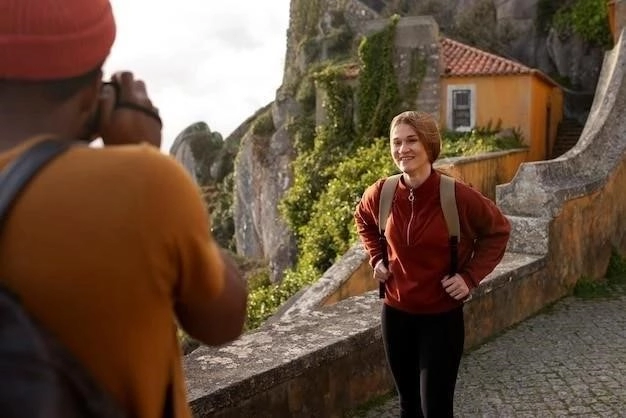
13. Shopping in Lebanon: Souvenirs and Local Crafts
Lebanon offers a vibrant shopping scene where traditional crafts, exquisite souvenirs, and modern boutiques converge, providing ample opportunities to find unique treasures and immerse yourself in the country’s rich cultural heritage.
For a truly authentic shopping experience, delve into the bustling souks, traditional marketplaces found in major cities and towns. In Beirut’s Souk Byblos, lose yourself in a labyrinthine maze of stalls brimming with colorful textiles, handcrafted jewelry, intricate woodwork, and aromatic spices. Engage with local artisans, haggle for the best prices, and uncover one-of-a-kind souvenirs to cherish your Lebanese adventure.
Beyond the souks, explore Lebanon’s modern shopping malls, offering a wide selection of international brands, designer boutiques, and local fashion houses. Discover contemporary Lebanese designers pushing creative boundaries and showcasing the country’s vibrant fashion scene.
For unique gifts and souvenirs, consider purchasing traditional Lebanese crafts, such as blown glass from Sarafand, olive oil soap from Tripoli, or intricate embroidery from Zouk Mikael. These handcrafted treasures reflect the skill and artistry of Lebanese artisans and serve as meaningful mementos of your time in Lebanon.
14. Responsible Tourism: Preserving Lebanon’s Heritage
As you immerse yourself in Lebanon’s captivating beauty, embracing responsible tourism practices ensures that its natural wonders, cultural heritage, and local communities continue to thrive for generations to come. By making conscious choices that minimize your impact and maximize your positive contribution, you become a steward of Lebanon’s treasures.
When visiting historical sites and natural areas, respect the environment by staying on designated paths, avoiding littering, and refraining from touching or disturbing ancient structures or artifacts. Support local businesses and artisans by purchasing locally made souvenirs, dining in locally owned restaurants, and staying in accommodations that prioritize sustainability.
Engage with local communities in a respectful and meaningful way, seeking opportunities for cultural exchange and learning about their traditions and perspectives. Consider supporting organizations involved in conservation efforts, cultural preservation, or community development projects. By traveling responsibly, you contribute to the well-being of Lebanon’s people, protect its natural environment, and preserve its rich cultural legacy for future generations to cherish.
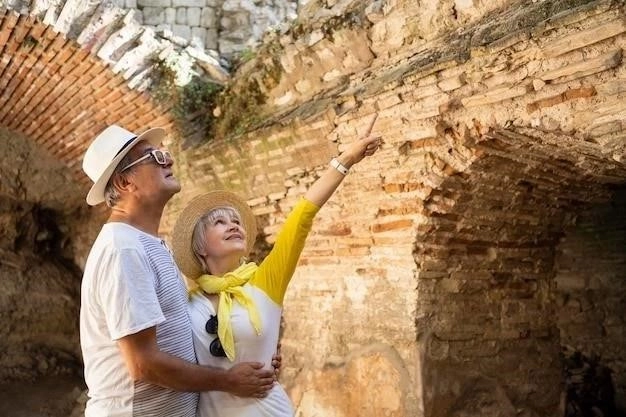
15. Conclusion: Embracing the Spirit of Lebanon
As you conclude your journey through Lebanon, you’ll carry with you not only memories of breathtaking landscapes and ancient wonders but also a profound appreciation for the resilience, warmth, and spirit of its people. Lebanon’s rich tapestry of history, culture, and natural beauty weaves an unforgettable travel experience that lingers long after you’ve returned home.
From the vibrant energy of Beirut to the tranquil beauty of the mountains and the ancient echoes of civilizations past, Lebanon offers a journey of discovery for every traveler. Embrace the warmth of Lebanese hospitality, engage with the locals, and savor the flavors of its exquisite cuisine.
As you depart from this captivating land, carry with you a newfound appreciation for the resilience of the human spirit, the power of cultural heritage, and the importance of embracing diversity. May your memories of Lebanon inspire you to continue exploring the world with open hearts and a deep respect for the people and places that make our planet so extraordinary.



